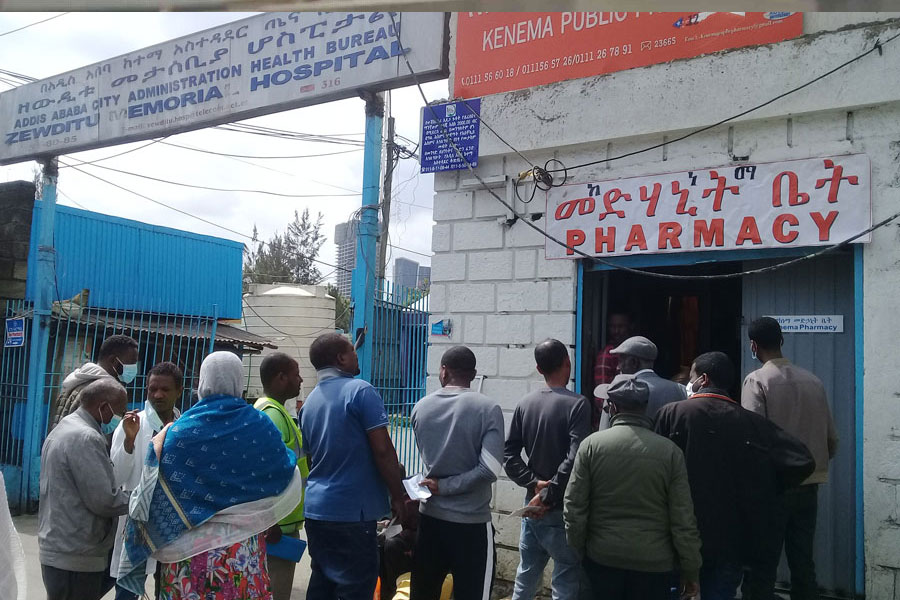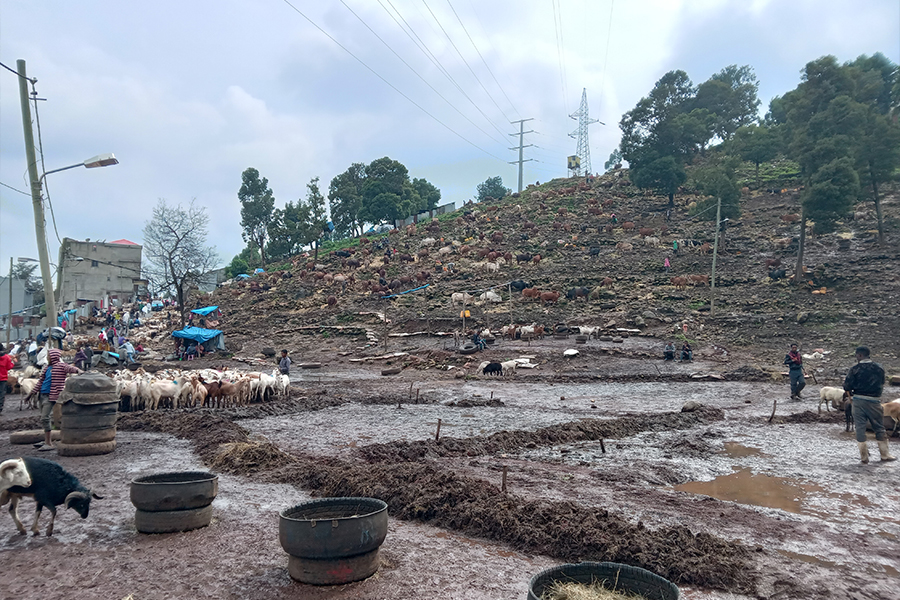
Agenda | Aug 11,2024
Avante Water, a brand of Turkish company General Group Beverages (GGB), joined the Ethiopian bottled water market as the 78th bottler on April 4, 2019.
With its factory located in Debre Birhan, the brand took 180 million Br to launch. With a permit from the Ethiopian Conformity Assessment Enterprise on November 26, 2018, the company introduced 19lt, 1.5lt and five-litre plastic bottles in addition to the regular half-litre product. The smaller sized bottles are squeezable in a bid to make recycling and collection easy.
Avante, a Portuguese word meaning "forward", is produced from a 206-metre deep well encased in a basalt aquifer located on a 67,000Sqm plot in Chacha, Angolela Tara wereda, some 110Km north of Addis Abeba.
“Chacha is a pollution free area and is located within close proximity of Addis Abeba, making it preferable for investment,” said Elias Gebremariam, factory manager.
The production capacity of the plant is an aggregate 30,000lt of water an hour for all bottle sizes. The plant has three fully automated production lines, which carry out plastic bottle forming, filling and packaging.
“The production lines are entirely free from human contact,” said Bulent Durmaz, general manager of GGB, a subsidiary of Garipoglu Corporate Group in Turkey, which has been engaged in food, beverage and home supplies manufacturing since 1970.
Employing 78 people and importing caps from Turkey, the company is planning to open a recycling plant as well as begin manufacturing cosmetics and alcoholic beverages, according to Bulent.
GGB is not the only food and beverage producer in Chacha Wereda. Alpha Mineral Water has been in production for the past two years, while Komari Liquor, owned by European investors, has already secured land from the wereda's land management office to construct a beverage processing and packaging plant. Wub Water and Habesha and Dashen beers are as well bottled in Debre Birhan.
The majority of Ethiopia’s water bottle producers are nonetheless located in Oromia Regional State. An aggregate of five billion bottles of water is produced annually.
Eyasu Elias (PhD), assistant professor and researcher at Addis Abeba University’s School of Environmental Science with more than a decade of experience, commented that squeezable plastic bottles simplify disposal. But he does not believe it will do much to improve environmental quality.
"The critical issue of pollution in urban cities is polyethene [the most common type of plastic] material, which is not degradable for centuries," he said. "Change will only be possible by shifting to biodegradable materials."
PUBLISHED ON
Apr 08,2019 [ VOL
19 , NO
989]

Agenda | Aug 11,2024

Radar | Jul 13,2024

Editorial | Dec 07,2024

Fortune News | Jan 29,2022

In-Picture | Sep 08,2024

Radar | Jun 24,2023

Radar | Sep 21,2019

Viewpoints | Apr 26,2025

Editorial | May 03,2025

Radar | Dec 26,2020

Dec 22 , 2024 . By TIZITA SHEWAFERAW
Charged with transforming colossal state-owned enterprises into modern and competitiv...

Aug 18 , 2024 . By AKSAH ITALO
Although predictable Yonas Zerihun's job in the ride-hailing service is not immune to...

Jul 28 , 2024 . By TIZITA SHEWAFERAW
Unhabitual, perhaps too many, Samuel Gebreyohannes, 38, used to occasionally enjoy a couple of beers at breakfast. However, he recently swit...

Jul 13 , 2024 . By AKSAH ITALO
Investors who rely on tractors, trucks, and field vehicles for commuting, transporting commodities, and f...

Jun 28 , 2025
Meseret Damtie, the assertive auditor general, has never been shy about naming names...

Jun 21 , 2025
A well-worn adage says, “Budget is not destiny, but it is direction.” Examining t...

Jun 14 , 2025
Yet again, the Horn of Africa is bracing for trouble. A region already frayed by wars...

Jun 7 , 2025
Few promises shine brighter in Addis Abeba than the pledge of a roof for every family...